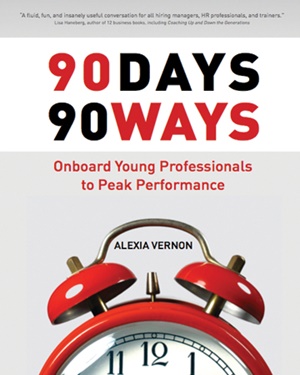When a team misses its sales targets for the year, management always looks for the root causes of the failure. Did we forecast too high? Was it our marketing? The sales effort? Did we price ourselves too high? Should we have leveraged more? Is there a new magic app we can buy?
Here’s a question that not enough sales leaders are asking: Is it the way we bring our new salespeople aboard?
According to the U.S. Bureau of Labor Statistics, the group of young professionals hired today will have approximately nine jobs by the time they reach the age of 32. Unless they feel vital, engaged and as if they are a contributing member of the team, they’ll move on to the next opportunity very quickly.
Turnover is expensive. According to the latest studies from Manpower, it costs a company an average of 150 percent of an employee’s annual salary to replace them in today’s marketplace.
Ticket sales departments for professional sports franchises are no different. There are four key elements missing or underdeveloped in many of these departments:
Key elements for bringing new sales associates aboard
1. Pre-hire aptitude, personality testing.
2. A standard procedure for welcoming new employees.
3. Ongoing training, educational opportunities.
4. Sales contests, little victories.
1. Pre-hire sales aptitude and/or personality testing
Too often teams still rely on gut instincts to hire sales reps, and often end up with professional interviewers instead of competent sales professionals. An inexpensive test like a DISC Profile, Kolbe RightFit or other testing instrument should be considered in the final stages of the hiring process to be used as one of the criteria for hiring. It could potentially eliminate obvious hiring mistakes.
It’s a best practice in many sales organizations to test several of the best salespeople in order to get a baseline profile of the kind of person they’re looking for. A good culture fit can be just as important as skills assessment in putting the right people aboard.
2. A standard, structured procedure for welcoming new employees
Regardless of the level of sales proficiency, there should be a standard procedure in place for the process of welcoming new sales representatives and getting them up to speed, and it should be different for entry-level salespeople versus experienced reps, both with and without sports industry experience.
A system takes time to prepare but pays off big down the road in reduced turnover and faster ramp-up times, meaning salespeople start paying for themselves more quickly. Lee Salz, sales management strategist and onboarding expert, notes in his 2012 Salesperson Onboarding Survey that reps who work for employers most satisfied with their onboarding processes got up to speed 34 percent faster than those who were not satisfied with whatever “system” they were using.
3. Ongoing training and educational opportunities
Despite older management’s thinking that young professionals are “do-ers, not learners,” much of what’s being discovered today is exactly the opposite. Once they understand their roles in the organization, these young, eager reps want to know where their opportunities are to learn and grow, and to get different perspectives on how success can be achieved in addition to what their direct supervisors are telling them.
Alexia Vernon, in her excellent book “90 Days, 90 Ways: Onboard Young Professionals to Peak Performance,” stresses the need for managers to get a grip on what motivates their workforce. “Young professionals have most definitely made a habit of learning,” Vernon says, “and you have a real opportunity to frame the work they are engaged in as a continuation of their previous education. It will help them stay motivated, focused, and on track for potential promotion.”
Provide your group with materials and voices from several different sources. Not everyone will connect with a single sales trainer or system, so allow opportunities for growth from as many angles as possible. Interdepartmental presentations (i.e., premium sales presenting a session on answering objections to the inside sales team) is a great way to help break down silos and share vital knowledge internally.
4. Sales contests and little victories
Don’t forget how important ongoing recognition and rewards are to your group of achievers. Team-based performance contests and incentives, both short and long term, get a sales room buzzing and makes a potentially routine job feel more like a game they can play to win.
Easy-to-administer, non-complicated games tend to work best. The Washington Nationals used a bingo card this past offseason with activities in each square that management wanted the group to concentrate on, such as having a 100-call day, booking a face-to-face sales appointment at the ballpark, and selling a prospect that returned a voice mail within 24 hours. Another MLB team used a “Battleship” theme, earning the chance to choose a square and sink the other team’s battleship when they sold a particular number of seats, with the eventual winning team earning a larger group prize.
None of these are new ideas, and yet, when new toys like dynamic pricing, instant seat upgrade apps and Foursquare begin to dazzle us, we can lose sight of our most important asset — our people. Don’t forget the improvements you can make to benefit your sales staff; they’re the ones who work every day to get the job done the old-fashioned way.
Bill Guertin (bill@The800PoundGorilla.com) is CEO (Chief Enthusiasm Officer) of Stadium Gorilla, a sports ticket sales training and consulting firm based in suburban Chicago.





